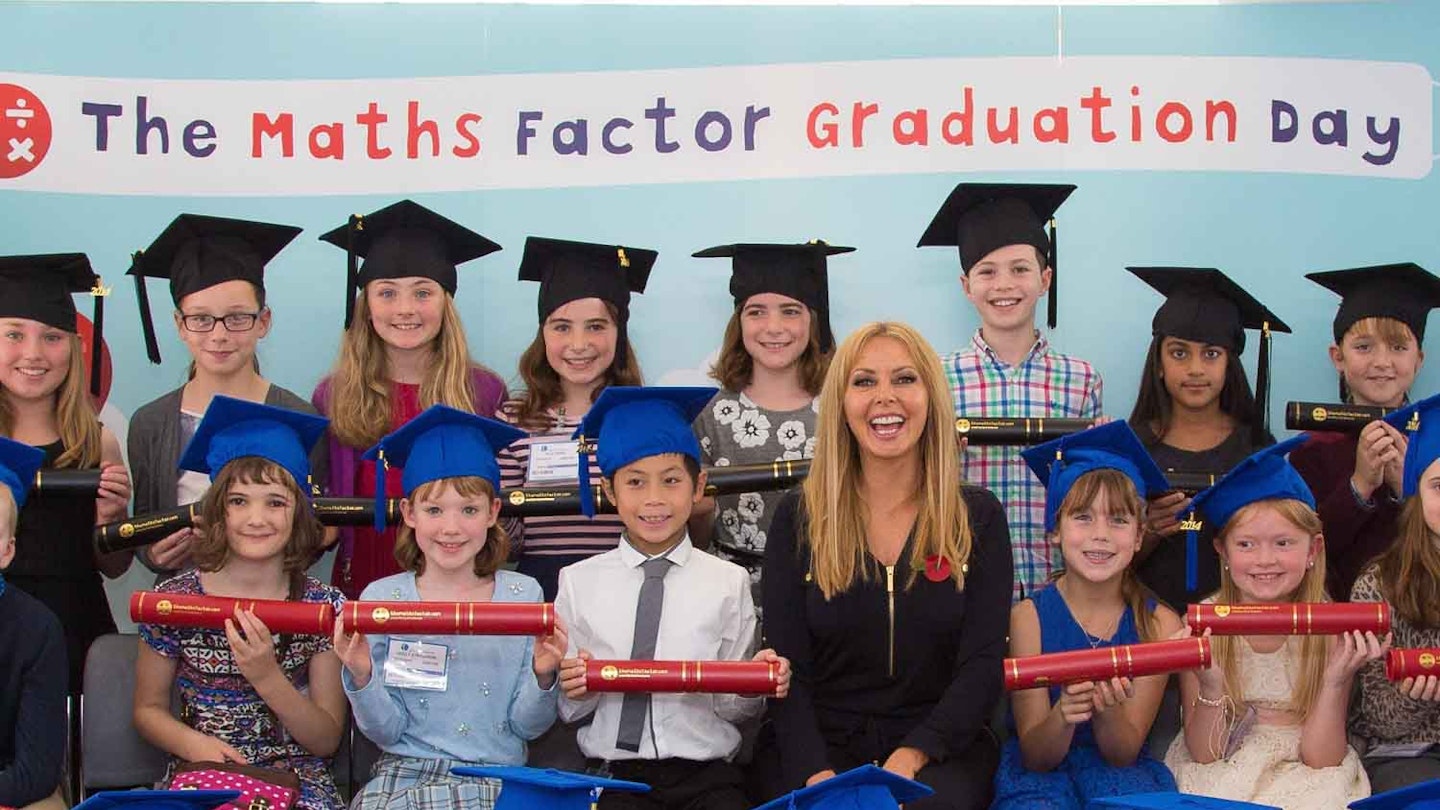TV presenter Carol is on a quest to get children interested in maths and comfortable with numbers. Here, she talks about her online school, TheMathsFactor.com and shares a few ideas for fun ways to learn
TheMathsFactor.com is Carol’s online maths tuition site for primary aged children, featuring a mix of video tutorials, practical sessions, quizzes and games. This month, she’s launched The 30 Day Challenge, a fun programme designed to encourage a little bit of maths practice every day. Children win online prizes and if they manage all 30 days they receive a Maths Factor medal in the post.
Helping children learn to love maths is very important to me. I’ve been writing maths education books for children for a very long time and in terms of my work, it’s the thing I’m most proud of because I know it changes children’s lives.
No child is born with an innate fear of numbers. Fear comes from what they’re told, particularly if parents say maths is hard, frightening or that they don’t like it themselves – these are the worst things you can say to a child. Every child can be good with numbers if they’re encouraged.
If a child is not up to speed with maths by the age of 11, they’ll remain that way
If a child is not up to speed with maths by the age of 11, they’ll remain that way: that’s a fact. It’s statistically proven that almost every child who fails their SATs will fail their GCSEs. Over 90 percent of primary school teachers are from the arts side and as a result maths is a subject of fear for almost all of them: we know this from government reports. So parents can complement the education our children are getting.
Maths isn’t a subject, it’s a language. And it’s the language not only of science and engineering and technology but of our entire infrastructure: commerce, economics, geography, everything relies on the language of numbers. Keep studying maths and every door is open to you, but drop it and half of them will be closed.
The key with maths is ‘little and often’
The key with maths is ‘little and often’. In the same way that mums are constantly pointing out letters to preschool children – what’s this letter, what sound does that make and so on – so the same principle applies with maths. Get them to notice numbers, see numbers everywhere, ask them to colour them in. Patterns are very important so help children to see numbers in the correct sequences. Help them to see numbers written down, in order.
I always say that maths is a ‘vertical language’. You have to write it in lines but then write numbers underneath one another, so you see patterns. In the Far East, and on The Maths Factor we teach in patterns but unless parents put the numbers down in patterns, children won’t start to understand them.
A simple number square is a good place to start: write 1 to 10 across and 1 to 10 down and fill it in with numbers, then say ‘let’s have a look at where all the number threes are’, asking your child to colour them in. Even if you’re not explaining it, they start to see patterns and not just jumbles of numbers and that’s critical.
I still love playing with numbers and teaching maths is my passion. Since I learnt how to fly a plane I’m using mental arithmetic all the time because it’s an essential part of being a pilot, calculating wind and drift, times and navigational stuff.
I was definitely faster at answering the Countdown challenges when I was up to speed. I’d practise every day and I got faster and faster. I wouldn’t like to attempt one now! It’s been many years since I did one. Maths is like learning the guitar or piano: you have to keep practising, little and often, that’s the way forward.
* The 30 Day Challenge can be started any time before September 30 2015 and used for a 30 day period. To sign up, and to take advantage of an introductory £1 offer, visit themathsfactor.com
